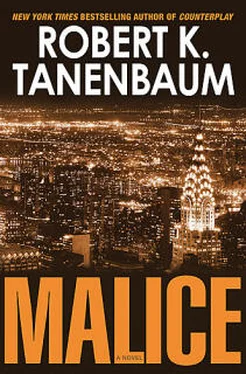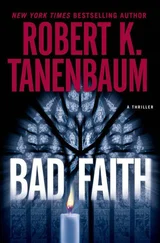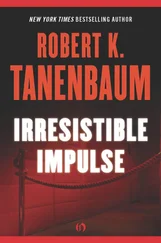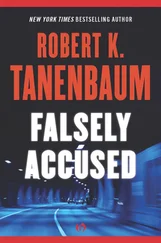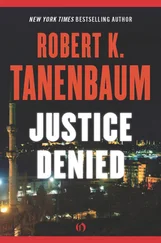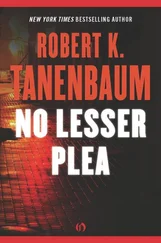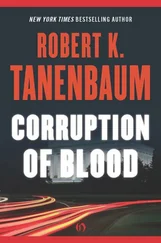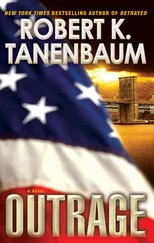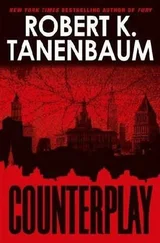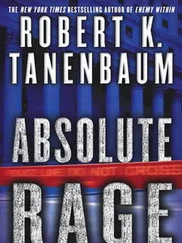Robert Tanenbaum - Malice
Здесь есть возможность читать онлайн «Robert Tanenbaum - Malice» весь текст электронной книги совершенно бесплатно (целиком полную версию без сокращений). В некоторых случаях можно слушать аудио, скачать через торрент в формате fb2 и присутствует краткое содержание. Жанр: Криминальный детектив, на английском языке. Описание произведения, (предисловие) а так же отзывы посетителей доступны на портале библиотеки ЛибКат.
- Название:Malice
- Автор:
- Жанр:
- Год:неизвестен
- ISBN:нет данных
- Рейтинг книги:4 / 5. Голосов: 1
-
Избранное:Добавить в избранное
- Отзывы:
-
Ваша оценка:
- 80
- 1
- 2
- 3
- 4
- 5
Malice: краткое содержание, описание и аннотация
Предлагаем к чтению аннотацию, описание, краткое содержание или предисловие (зависит от того, что написал сам автор книги «Malice»). Если вы не нашли необходимую информацию о книге — напишите в комментариях, мы постараемся отыскать её.
Malice — читать онлайн бесплатно полную книгу (весь текст) целиком
Ниже представлен текст книги, разбитый по страницам. Система сохранения места последней прочитанной страницы, позволяет с удобством читать онлайн бесплатно книгу «Malice», без необходимости каждый раз заново искать на чём Вы остановились. Поставьте закладку, и сможете в любой момент перейти на страницу, на которой закончили чтение.
Интервал:
Закладка:
"But in the Duke case how does the confrontation clause, which has to do with the right of a defendant to cross-examine witnesses during a trial, apply?" Plaut noted. "What does it matter if these statements are made to the press as long as the defendants' rights are protected at trial?"
"At trial, the defendants will have the opportunity to present evidence, confront witnesses against them, and have their fate determined by the rule of law as applied by an impartial judge and a jury of their peers," Karp said. "All those things that Raleigh was deprived of at his trial. But that due process fairness is compromised by prosecutors who engage in pretrial, win-the-hearts-and-minds of the jurors press conferences. The defense lawyers chimed in to proclaim their defendants' 'innocency,' as Raleigh did, but the damage to their reputations was done."
"I find this attitude surprising, and refreshing, coming from the district attorney of New York," Epstein said, grinning at Hall.
"Not really," Karp replied. "Mr. DA Francis Garrahy established the model here in Manhattan before I was born. He mentored us to understand that the unjustly accused must be exonerated, and that not to prepare thoroughly, and not to courageously and vigorously represent the people were the cardinal sins of prosecution."
When Karp finished there was a moment of silence. Then Plaut began to clap and was quickly joined by the others. With cries of "Hear, hear," they raised their glasses of orange juice and toasted his speech. Florence produced a flask of brandy and, after applying a generous dollop to his orange juice, passed it to the others, who spiked their drinks with an air of teenagers getting away with something.
The alcohol seemed to go straight to Karp's head and in the glowing effect he asked about the origins of the Sons of Liberty Breakfast Club. The answer was somewhat vague but essentially came down to their wives having grown tired of their postretirement hanging around the house and kicking them out. "We were driving them batty," Florence announced proudly.
However, there was a darker reason. "We were sitting right here when the bastards flew the planes into the World Trade Center," Gilbert said, pointing to the empty space four blocks to the south where the towers had once stood. "We thought that, perhaps, it was a good time to remember that during times of stress and fear, the protection of civil liberties is all that much more important."
"Well said," Karp responded. "To paraphrase Roosevelt, our greatest fear when it comes to liberty should be fear."
Most of the rest of the meeting was occupied by the arrival of breakfast and the group teasing the pretty girls who walked by. Full of pancakes and banter, Karp rose to leave and get the rest of his morning walk in.
"I think I speak for all of us, Mr. Karp, when I say that we enjoyed your company and your contribution to our little breakfast club," Plaut said. "Perhaps you'll join us again?"
"I'd be honored," Karp replied.
Florence passed a different silver flask to Karp, who unscrewed the top and sniffed. "Whiskey?" he asked, and then looked at his watch. "At nine a.m. on a weekday?"
"How do you think we lived this long?" Florence replied, and the others laughed.
Karp shook his head and raised the flask to his lips as the others shouted, "To Raleigh! This is sharp medicine that will cure all my ills."
"To sharp medicine!" the others shouted again.
As they watched Karp depart, Sunderland leaned toward Plaut. "Interesting fellow, wouldn't you say?
"Yes," the judge answered. "We've been following his career for quite some time." He turned to Sunderland. "Did you get the package off that our dear departed friend left in our care?"
The group fell silent and turned to the priest. "Yes. If you remember, that's why I was heading to see Mr. Karp on the day he was shot. But due to concerns over traitors and such, we agreed on this new route. It should have arrived already."
"Good, good," Epstein said. "That should get the wheels in motion."
"So now we just watch?" Gilbert asked.
"Yes, now we just watch," Plaut replied. "After all, that's what we've done for more than two hundred years."
Unaware that he was still the subject of discussion back at Kitchenette, Karp continued four blocks to Vesey Street and stood looking at the emptiness that had once been occupied by the World Trade Center. It wasn't just that the towers were missing, he thought, but it was as if their destruction had created a vacuum that pulled the eye to the hole in the ground and the mind to the numbing thought of what had happened.
Hard to believe that five years had passed. So much had changed. A war in Afghanistan. Followed by another in Iraq. All falling under the general rubric of the War on Terrorism. But were we winning these wars? Do we have the strength of character to win?
As many people had died that day as had been killed at Pearl Harbor sixty years earlier, launching the United States into a war that U.S. leaders had from the beginning said would end with one acceptable solution. Unconditional surrender. No negotiations. No allowing the enemy to keep the means to wage wars of aggression. It was surrender or die every last man, woman, and child if necessary. And they'd used atomic weapons to make the point.
What, Karp wondered, would U.S. leaders and, more important, a wavering public be willing to accept from al Qaeda, or an Islamic extremism in general that set as its goal a world caliphate? Unconditional surrender? The death of every Muslim, every man, woman, and child in those parts of the world that threatened the West?
And what would the United States and its allies be willing to accept in casualties to win? Not just in the lives of their young men and women, but in their way of life and their civil liberties. Tens of thousands of lives? A military government? A dictatorship that promised to keep them safe in exchange for their freedoms?
Watching the smiling, joking tourists standing in front of the observation area and snapping photographs as though they were at the Grand Canyon, Karp imagined the same scene at Fiftieth and Fifty-first streets, where there would have been a hole in the ground if Andrew Kane and the terrorists had succeeded in blowing up St. Patrick's Cathedral.
"BEHOLD THE DESTRUCTION OF THE TEMPLE…AS FORETOLD IN THE BIBLE!"
Karp whirled at the thundering of the voice behind him. A wild-eyed denizen of the streets stood there in a filthy yet colorful coat that appeared to have been sewn from the remains of many other articles of clothing. Beneath it, he could see a stained and faded T-shirt on which were stenciled the words Jerry Garcia Lives!
With his wild mane of wiry gray hair and a flowing salt-and-pepper beard, the man had always reminded Karp of some prophet newly arrived from the desert. "Well, Edward Treacher, imagine meeting you here," he said.
Treacher, a former philosophy professor of some note at New York University during the 1960s until a dose too many of LSD had addled his brain, was one of the regular street people who Karp often saw hanging around the Criminal Courts Building. He sometimes frightened the tourists with his vociferous biblical warnings, but he was harmless and from time to time, as one of Grale's Mole People, passed "street information" to Karp.
"Free country, the last time I looked, Mr. Karp," Treacher replied. "Though seemingly less free with each passing day, thanks in part to this." The old bum looked at the WTC site and then glanced around as if someone might hear.
"The government, of course, knew about the attack before it happened," Treacher said under his breath, which smelled of cheap wine, marijuana, and poor dental hygiene.
Karp raised his eyebrows. Every New Yorker had, of course, heard the conspiracy theories that concluded that the U.S. government was in some way involved in the September 11, 2001, attack. The theories ranged from criticism that the intelligence community and the military should have known the attack was coming and that the 9/11 Commission was merely a cover-up for their incompetence, to allegations that rogue elements within the government either allowed the attacks to happen or executed them in order to pursue already determined foreign and domestic policies. One theory even had government agents planting bombs in the building to bring them down and then blame Osama bin Laden.
Читать дальшеИнтервал:
Закладка:
Похожие книги на «Malice»
Представляем Вашему вниманию похожие книги на «Malice» списком для выбора. Мы отобрали схожую по названию и смыслу литературу в надежде предоставить читателям больше вариантов отыскать новые, интересные, ещё непрочитанные произведения.
Обсуждение, отзывы о книге «Malice» и просто собственные мнения читателей. Оставьте ваши комментарии, напишите, что Вы думаете о произведении, его смысле или главных героях. Укажите что конкретно понравилось, а что нет, и почему Вы так считаете.
